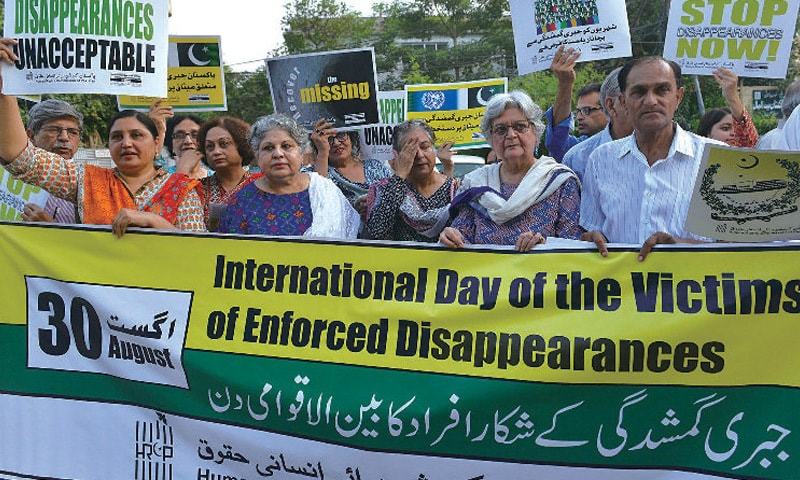
Pakistan has long had a history of a state where citizens are subject to “enforced disappearances” — people who speak out against the state especially the deep state are kidnapped, disappear, tortured, and killed.
In 2011, on the recommendation of a three-member commission of retired judges of high courts, the Commission of Inquiry into Enforced Disappearances (COIED) was set up to deal with this issue.
However, in a recent column, one of Pakistan’s leading human rights voices, I.A. Rahman, noted, “this commission has done little to address the central task, ie putting an end to disappearances. Before the commission’s tenure expired last month, the International Commission of Jurists and Pakistani civil society organisations had called on the government to not extend the commission’s life. However, the government deemed it prudent to extend its tenure by three years and retain its incumbent head. The critics of COIED do not deny the need for an organisation to help the government to end enforced disappearances, but they have consistently demanded a body that can deliver. They have been ready to put their trust in the existing commission if its need for adequate human and financial resources could be met.”
According to Rahman, “The reasons for lack of confidence in the existing commission are well known. From March 2011, when it inherited 238 cases from the commission of judges, to the end of September 2020, this commission received only 6,548 new cases, giving us a total of 6,786 cases on its roster. Nobody believes that the victims of enforced disappearance in the country number only 6,786. Quite obviously, a large number of people do not report to the COIED as they have little faith in it. The lack of confidence in the commission is most clearly marked in the case of Balochistan that reported only 514 cases during more than nine years as against 2,881 cases reported by Khyber Pakhtunkhwa, 1,619 by Sindh and 1,413 by Punjab.”
As Rahman notes, “A complete record of the performance of the COIED by its own admission yields the following figures: cases received till Sept 30, 2020: 6,786; cases disposed of: 4,718; persons returned home: 2,150; persons found at internment centres: 842; persons found in prisons: 529; persons who died: 216; cases deleted: 981; cases pending: 2,068. Last month was a relatively good one for the commission which disposed of 76 cases as against the 34 fresh cases received during the month. For those who value human liberty, the number of fresh cases within a month is too high for complacency. A look at the 76 cases disposed of last month does not offer comfort either. Eleven of these cases were dropped for not qualifying as enforced disappearances. Of the 65 persons claimed to have been traced, 53 are said to have returned home, five were found detained at internment centres, four were found in prisons, and three had died.”
Finally, Rahman argues, “the government must recover its will to address the issue of enforced disappearances that is causing indescribable agony to thousands of victims’ families and bringing the country a bad name in the councils of the world. The sooner Islamabad recognises its duty to the victims of enforced disappearances the better.”
![]()





